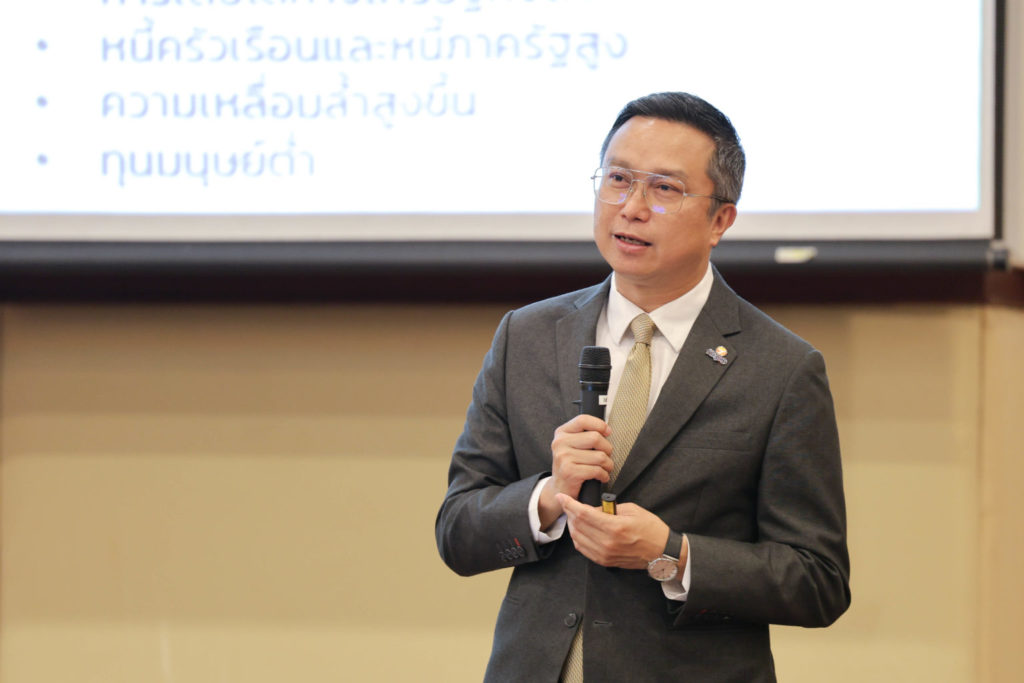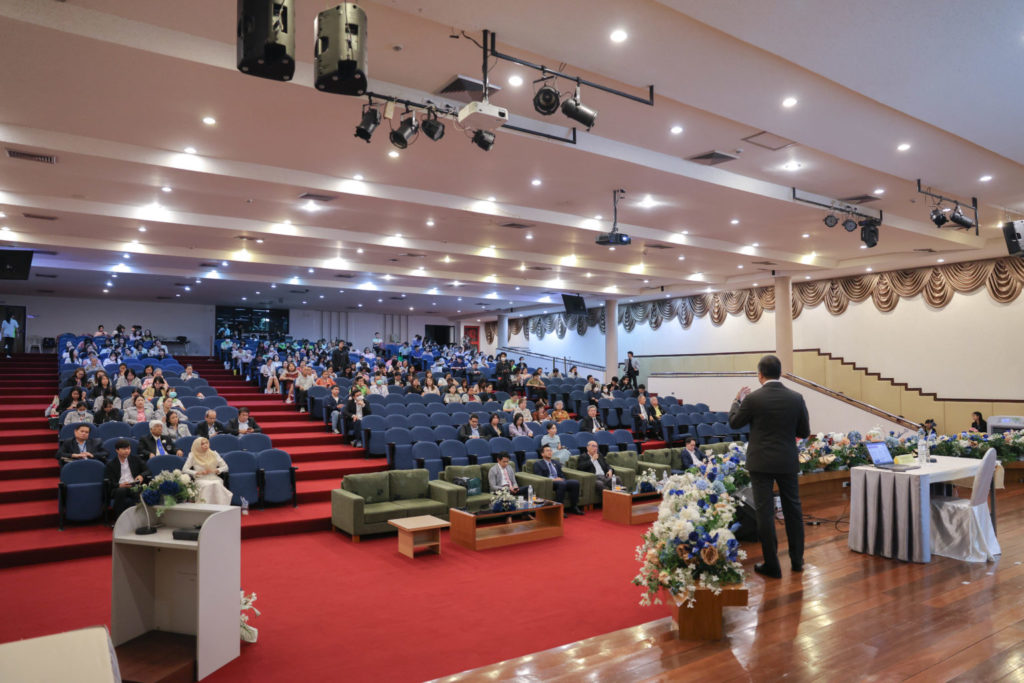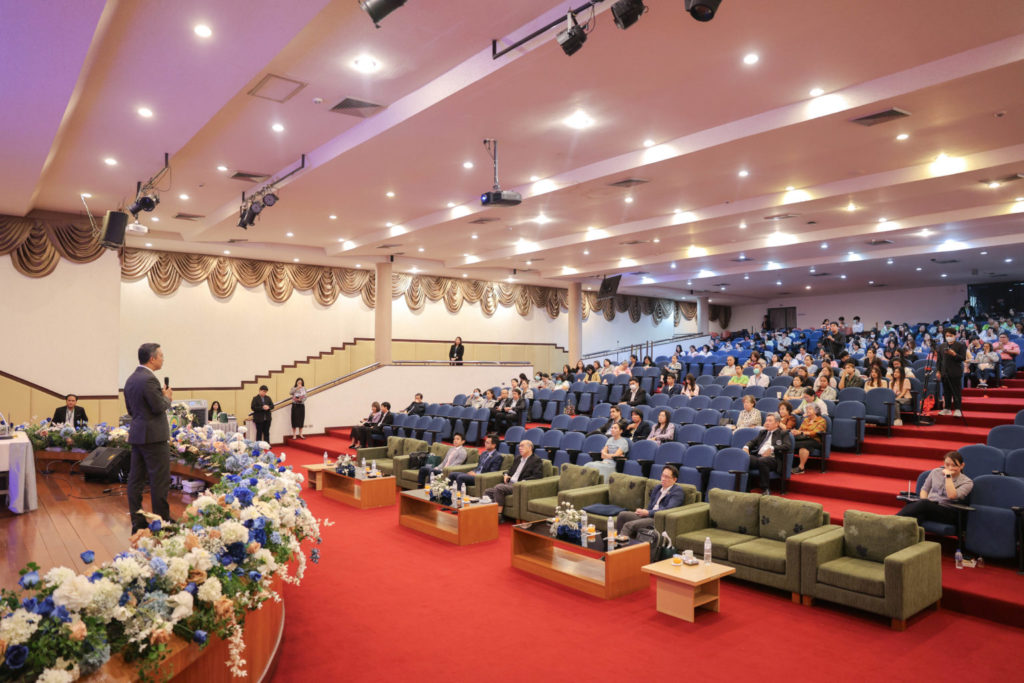On 21 October 2025, Dr. Surachai Sathitkunarat, President of NXPO, delivered a keynote address titled “Science Driving the Economy: The Power of Knowledge for Sustainable Development” at a seminar commemorating the 127th Anniversary of Dr. Tua Lapanukrom. The event was organized by the Dr. Tua Lapanukrom Foundation in collaboration with the Department of Science Service.
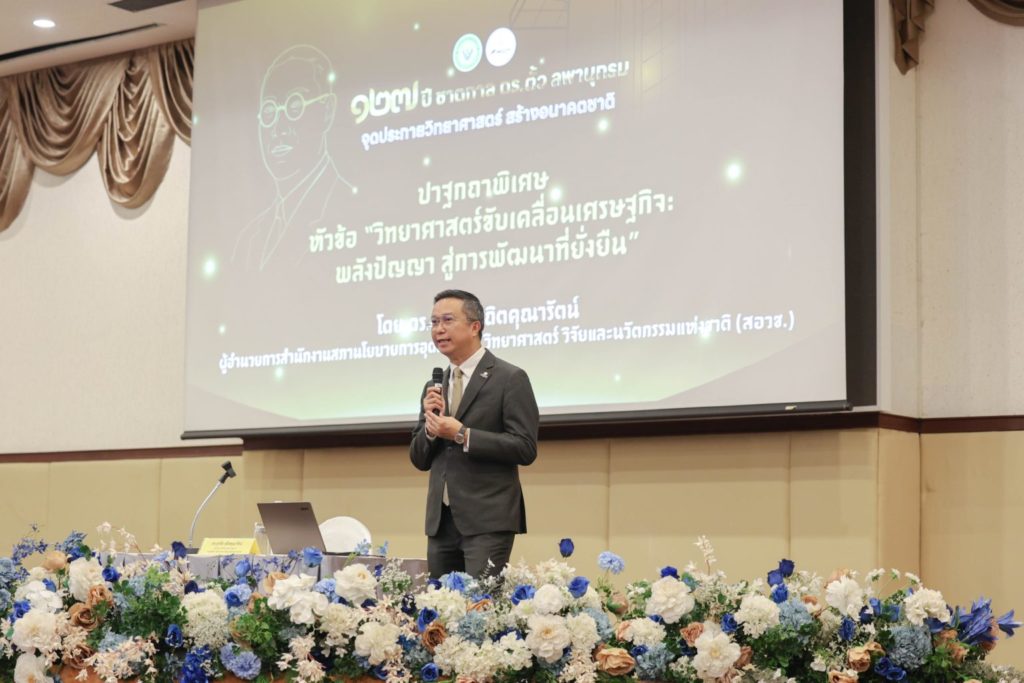
Dr. Surachai outlined four major challenges currently confronting Thailand’s economy:
- International Trade: Geopolitical shifts demand that Thailand closely monitor global developments, particularly among major powers and ASEAN countries. The restructuring of global value chains following the pandemic and new trade regulations—such as the EU Green Deal, Carbon Border Adjustment Mechanism (CBAM), and EU Deforestation-free Regulation (EUDR)—pose significant challenges. Without timely adaptation, Thai exports may face restrictions that could impact the national economy.
- Technological Change: Thailand’s low total factor productivity indicates outdated production technology. The nation must invest in advanced technologies such as smart manufacturing, artificial intelligence (AI), and synthetic biology to enhance competitiveness.
- Political Stability: Ongoing political changes and uncertainties continue to affect investor confidence and long-term development planning.
- Domestic Economy: Persistent issues—such as low economic growth, high household debt, inequality, an aging population, and limited human capital—remain barriers to sustainable progress.
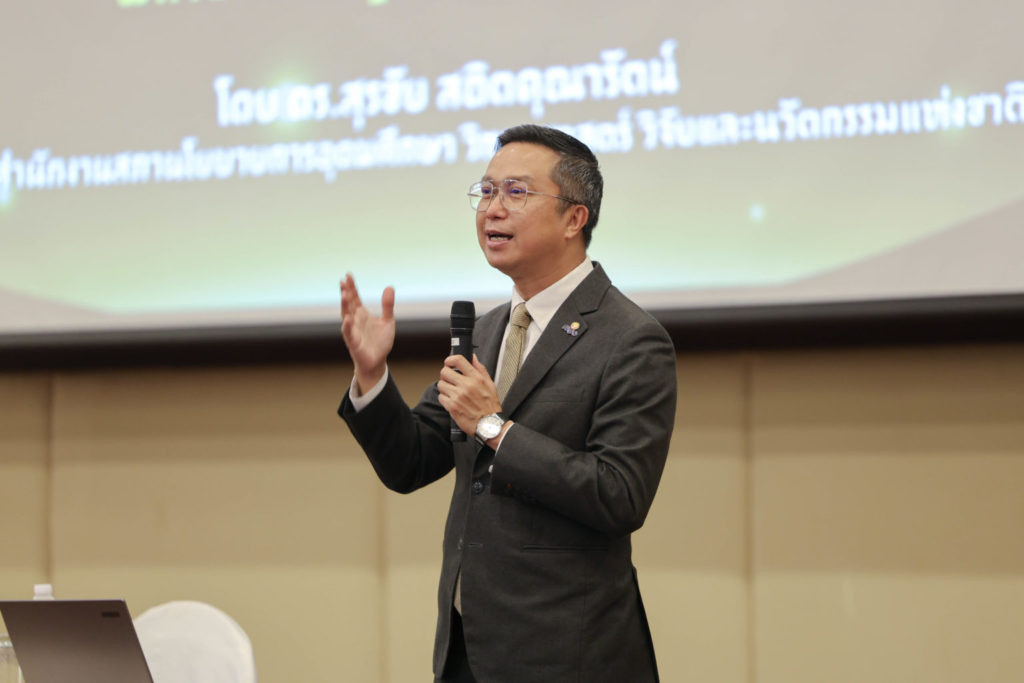
To address these challenges, Dr. Surachai emphasized NXPO’s integrated policy approach to economic development, highlighting five key policy initiatives:
- University Holding Companies: Empowering universities and public research institutes to co-invest with the private sector and commercialize research outputs. To date, 12 universities have established holding companies with a combined registered capital exceeding 500 million THB, investing in over 100 startups.
- Semiconductor Workforce Development: Aiming to train 86,680 skilled workers over five years through six specialized training centers to meet industry demands.
- Higher Education Sandbox: Accelerating curriculum development to align education with industrial needs. To date, 24 new programs have been approved under this framework.
- Promotion of the Future Food Industry: Supporting the Food and Drug Administration (FDA) in developing a Positive List of approved health claims for product labels and advertisements, and advancing the Foods for Special Dietary Use (FSDU) industry.
- E-Commerce and Innovation Platform: Expanding markets for innovative products, enabling SMEs to access global online platforms, and strengthening competitiveness through digital tools and data analytics.
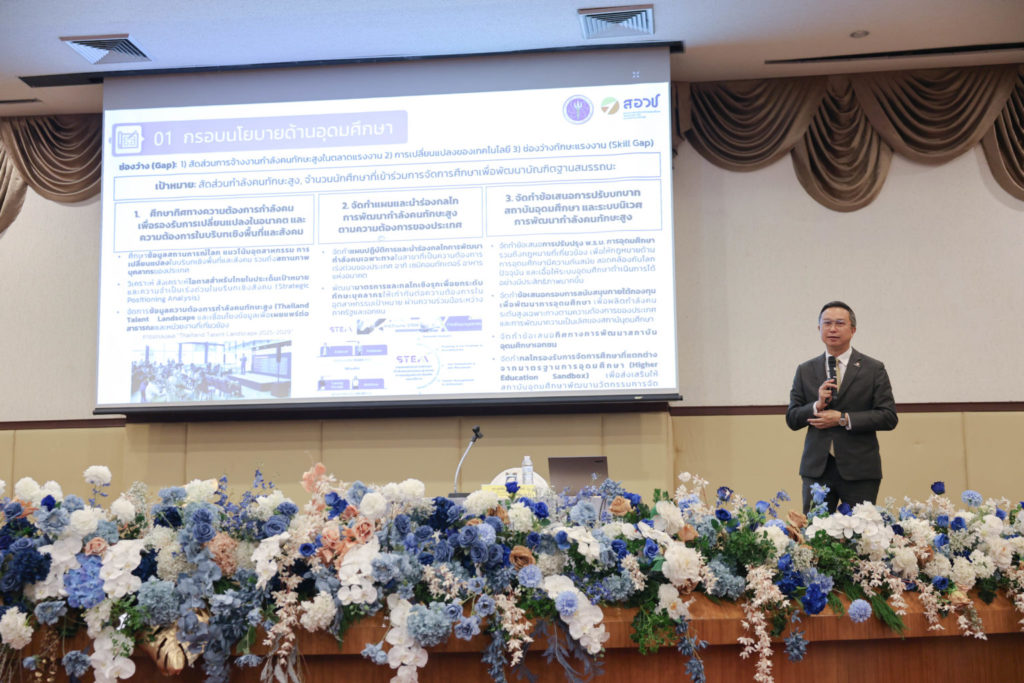
Dr. Surachai also outlined five strategic directions to leverage higher education, science, research, and innovation as engines of economic transformation:
- Higher Education Policy Framework: Addressing three critical gaps—(1) the low share of high-skilled employment, (2) rapid technological change, and (3) persistent skill mismatches. NXPO aims to assess future workforce needs, design and pilot mechanisms for high-skilled workforce development, and redefine the roles of higher education institutions within this ecosystem.
- Science, Research, and Innovation Policy Framework: Harnessing science and innovation to tackle environmental and climate challenges, foster inclusive and secure societies, and promote sustainable economic growth.
- Industrial Development Framework: Prioritizing semiconductors and advanced electronics to establish Thailand as a leading manufacturing hub in Southeast Asia.
- Upgrading SMEs into Innovation-Driven Enterprises (IDEs): Enhancing SMEs’ access to technology to improve productivity, product quality, and innovation capabilities.
- Area-Based Development and Inequality Reduction: Positioning universities as local development hubs to drive regional growth, reduce disparities, create equitable opportunities, and build knowledge-based local economies.
